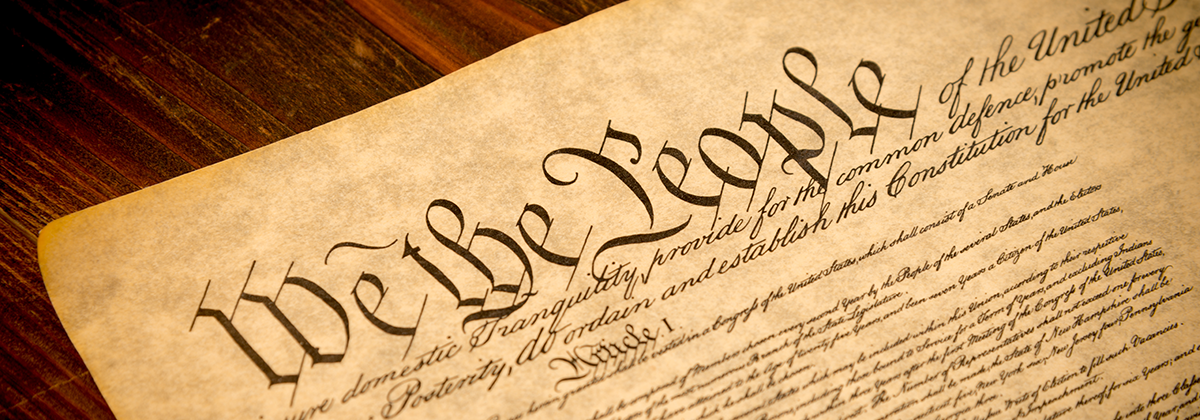Let’s make the complex simple. One CSCC participant would like to know my thoughts about the term “living constitution.” First, have you ever heard of “the living constitution?” This is a philosophy based on a “revolving door” definition of truth.
When our Founders wrote the US Constitution, “truth” was defined as absolute and unchanging. For example, you’ve often heard me mention “The Laws of Nature and Nature’s God” from our Declaration of Independence. An alternate view of truth was introduced as early as our country’s founding through philosophers like Rousseau, Hegel, Wilhelm, Comte, and others. Gradually, over time, the idea that “truth” could evolve as man evolves began to infiltrate Europe and the United States.
There became an alternate theory of law called “Legal Positivism.” This was in direct contrast to our Declaration’s Natural Law (unchanging truth). This new theory introduced at Harvard Law School in the 1870s held that:
-the law has no Divine absolutes; it is whatever the state says it is
-the law evolves as man evolves; again, no absolutes (kind of like yesteryear’s criminal behavior is today’s acceptable form of protest)
-no longer a biblical foundation to the law as in Exodus, Leviticus, Deuteronomy
-case law (judges’ decisions) becomes the standard
Some may be thinking, so what? Over time, the result is that some (NOT all) judges consider themselves no longer bound to the original intent of the Framers in the US Constitution. Instead, they perceive the Constitution to be “living” or changing as those judges see fit. They can give rights to whom they please and take rights away from others. Do you see this happening today? Is “murder” still the taking of a life? Or is murder not murder depending on circumstances?
Here’s the problem: None of us can be assured that the culture will drift into better behavior. None of us can be sure that all judges will be fair or more enlightened. That is why the original intent of the Framers is essential. The Laws of Nature and Nature’s God are absolute and unchanging. Now, there’s a level playing field we can build upon to obtain “equal justice under the law.”
Therefore, I do not believe in the “living Constitution approach”, nor do I teach it as fair and equal in my classes.
The mailbox has a follow-up question. The writer wonders if I believe the Bill of Rights should have been rewritten to be a part of the original Constitution. If not, they ask, should the USA have a rewrite of our Constitution to include the Bill of Rights (to better validate those rights as inalienable?
In short, my answer is: no rewrites and no new Constitutional Convention.
There was a disagreement among our Founders. Madison didn’t think we needed to spell out our rights since our Constitution, by its very nature, limits and enumerates the powers of the federal government. Hamilton worried that if we didn’t list Every.Single.Right., the government could take away one or more rights.
On the other hand, many people were in favor of a Bill of Rights. The Anti-Federalists wanted it. Jefferson regretted not having a Bill of Rights. Federalists agreed to a Bill of Rights if the Constitution was ratified. In my humble opinion, the Founding Fathers did the research, had the debates, and followed the ratification process. I’m satisfied that our Bill of Rights IS a part of the Constitution. Also, “unalienable rights” are rights that can’t be taken away. They are given to us by God. We are born with them. We already have a statement in our other organic founding document, The Declaration of Independence, that affirms these rights.
What America do you want? The one envisioned by our Founders and enshrined in our organic founding documents? Or one that follows the cultural drift and does not guarantee your unalienable rights or those of your posterity?
This is Common Sense Civics and Citizenship. ??

